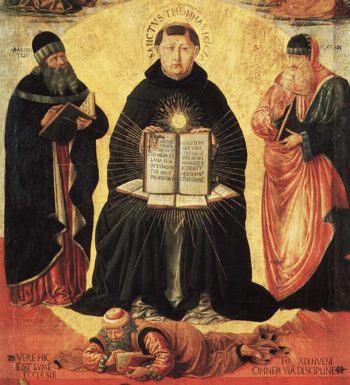 Who am I? What am I? Where am I going? These are three profound questions that come to mind whenever I am challenged by Scripture – such as today’s first reading – to lead a faithful and virtuous life.
Who am I? What am I? Where am I going? These are three profound questions that come to mind whenever I am challenged by Scripture – such as today’s first reading – to lead a faithful and virtuous life.
They are also questions that have troubled the hearts and minds of mankind, regardless of faith, throughout the ages.
Here is what the reading says:
His divine power has bestowed on us everything that makes for life and devotion, through the knowledge of him who called us by his own glory and power. Through these, he has bestowed on us the precious and very great promises, so that through them you may come to share in the divine nature, after escaping from the corruption that is in the world because of evil desire.
For this very reason, make every effort to supplement your faith with virtue, virtue with knowledge, knowledge with self-control, self-control with endurance, endurance with devotion, devotion with mutual affection, mutual affection with love.
But why?
Why can’t we just do what we want? Why must we think before we act? How did we come to understand that mankind was on a higher level than animals?
The Church’s understanding of this begins with Genesis and the story of creation, when God created man in “his own image and likeness.” After days of progressive creation of things of nature and living creatures, God created man and elevated him – through the gifts of intellect, free will and a desire for wisdom – to that of master of all other creatures. With this, mankind becomes the high point of creation or “the summit of the creator’s work.”
Unlike the animals, which move, react and procreate by instinct alone, mankind was created with a body and a soul. The soul was understood as the driving force within the flesh that empowered man to make decisions and act with knowledge and wisdom, rather than instinct alone, a concept that has been further developed over time.
In the age of the Old Testament, the idea of a soul was not yet fully realized. Authors of that era believed man has from God a spirit, but it is not the soul. There seemed to be some confusion and disagreement over the nature of this spirit. The Hebrews felt that man was an “animated body” while the Greeks believed man was an “incarnated spirit.”
Thanks in large part to the development of our understanding of the soul by St. Thomas Aquinas, the Catholic Church today teaches that the human soul is more than simply a source of energy that animates our flesh; “not only the source of physical life for our bodies, but is also the core of our spiritual powers of knowing and loving.”
Mankind, created in the image of God with an intellect and an embodied soul, is also endowed with a conscience, an interior force that guides our actions, and a freedom of will that allows us to make decisions with the “dignity of acting on our own” (CCC 306). The conscience, our inner voice of reason, has been planted within us as God’s natural law, constantly calling us to do what is right and what is good for ourselves and our neighbors.
Often times, we ignore that voice.
As humans, the Church teaches, part of our nature is a weakness caused by sin and an inclination to serve ourselves rather than our creator. This dichotomy within our own hearts plays out each day, each moment of our lives and ultimately becomes part of our defining nature. Our entire life shows itself to be a struggle between good and evil, light and darkness.
Fortunately for us, the faithful, a spirit of contriteness and a desire for mercy compels us to seek forgiveness of our sins and graces for weaknesses, to empower us to continue on the right path toward everlasting life. We make that choice with our free will.
God gave us the ability to do so because he wants us to want him. We are not called to respond by instinct, the way our dogs respond to us when we come home at the end of the day.
It is comforting to know that we can set our troubled minds at ease. Christ has already won the battle over death on our behalf. By living a good and moral life, holding fast to our faith, seeking mercy for our sins and attaching ourselves to Christ through the Sacraments and our own free will, we have hope that we will one day be united in Christ, with our loved ones who have already died and with those who are yet to come.
